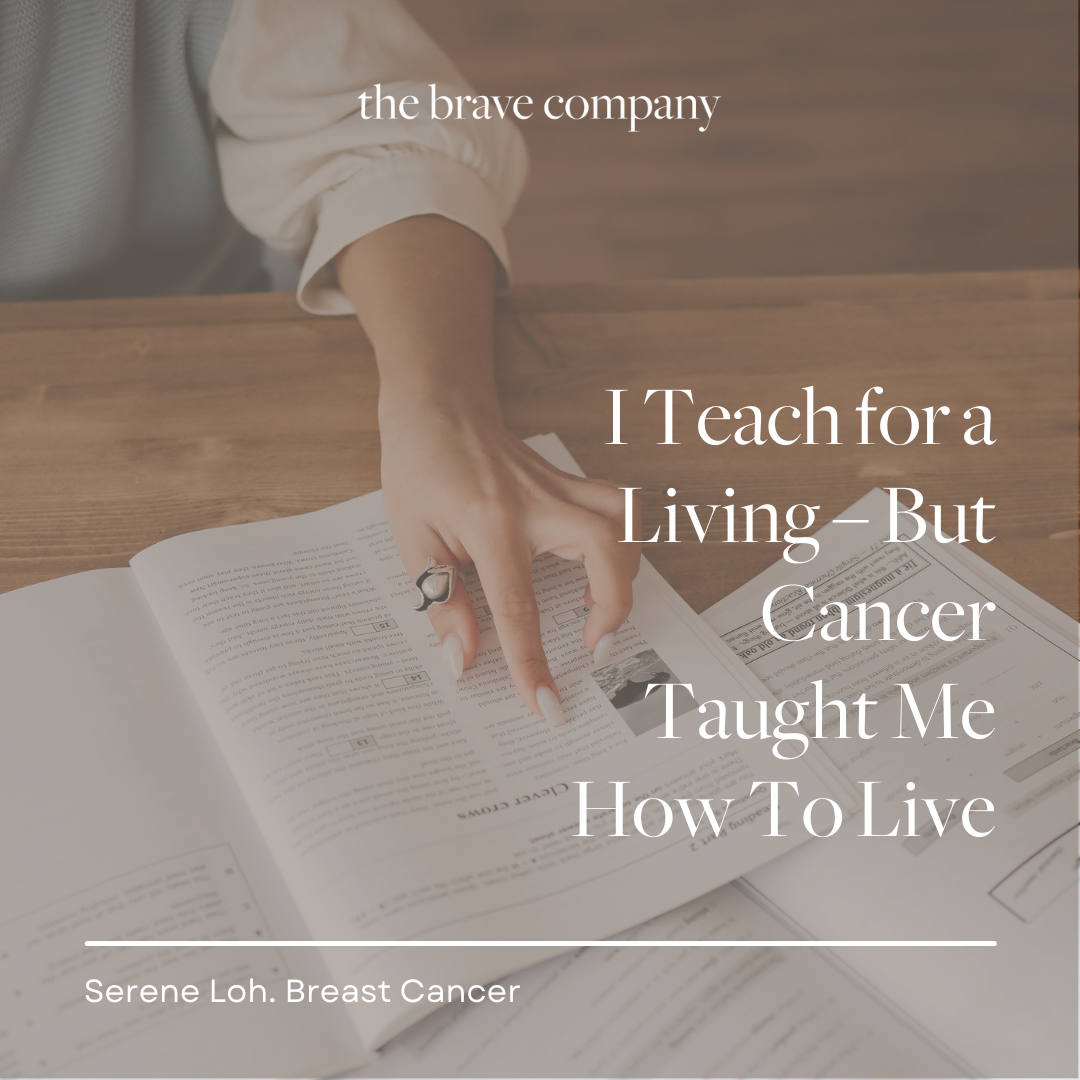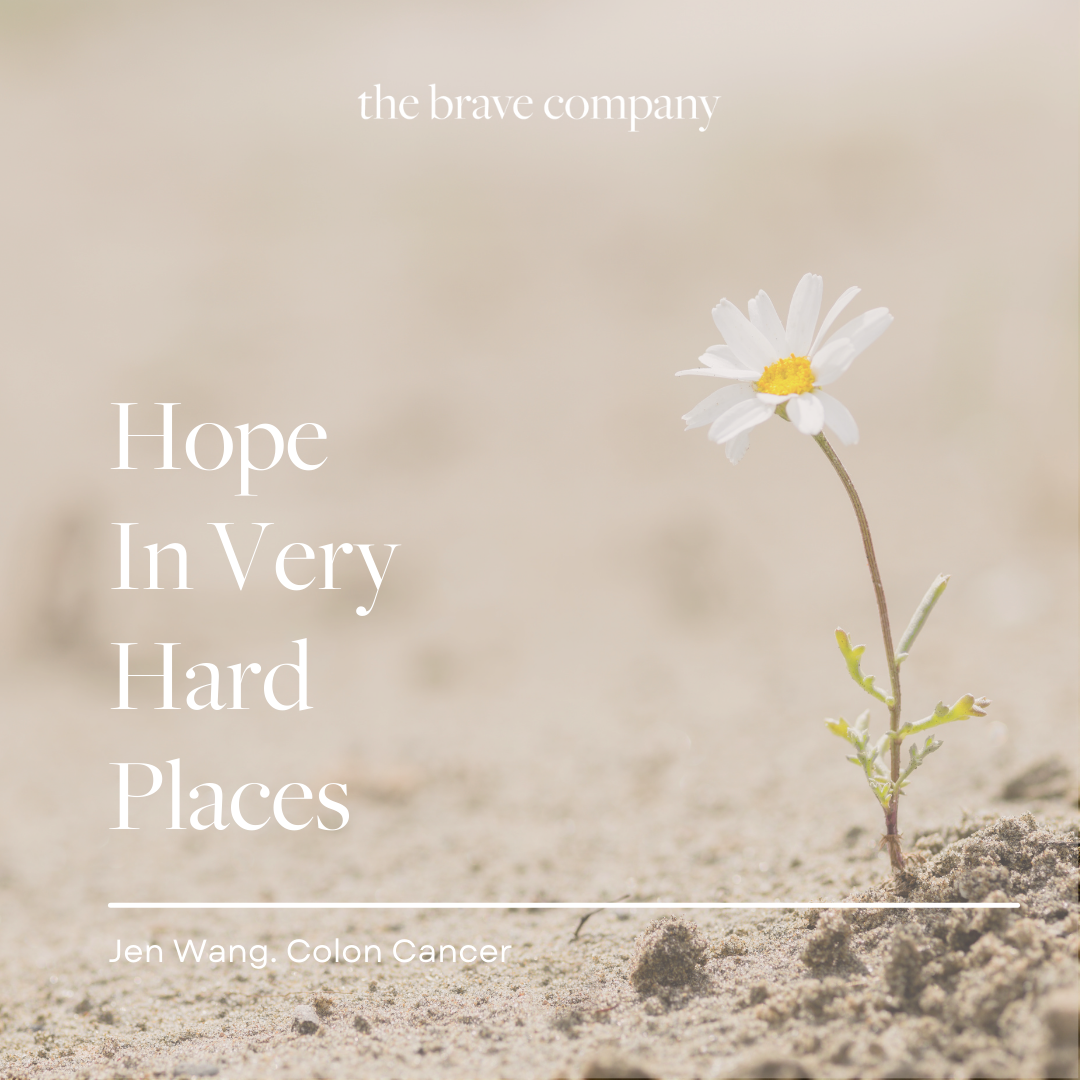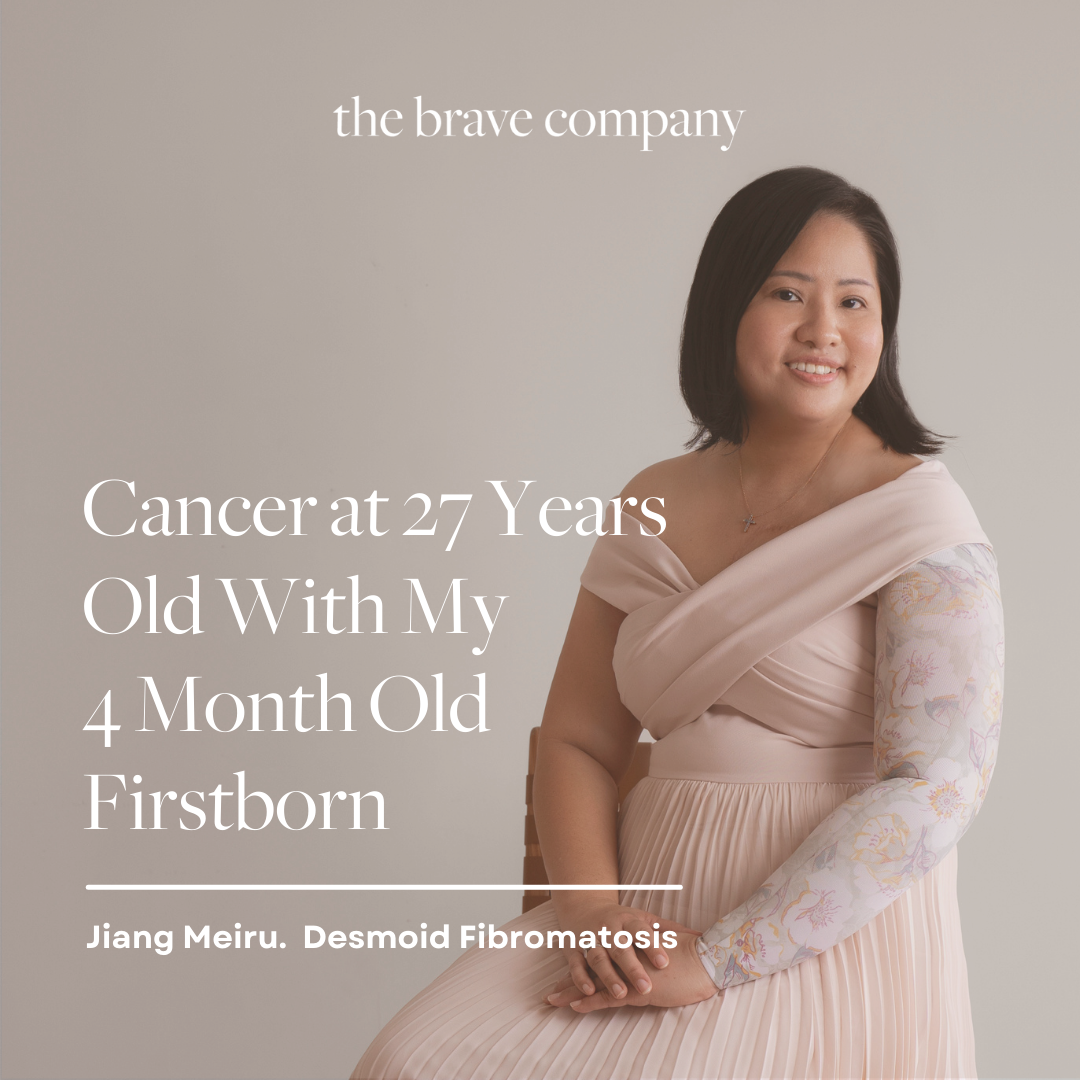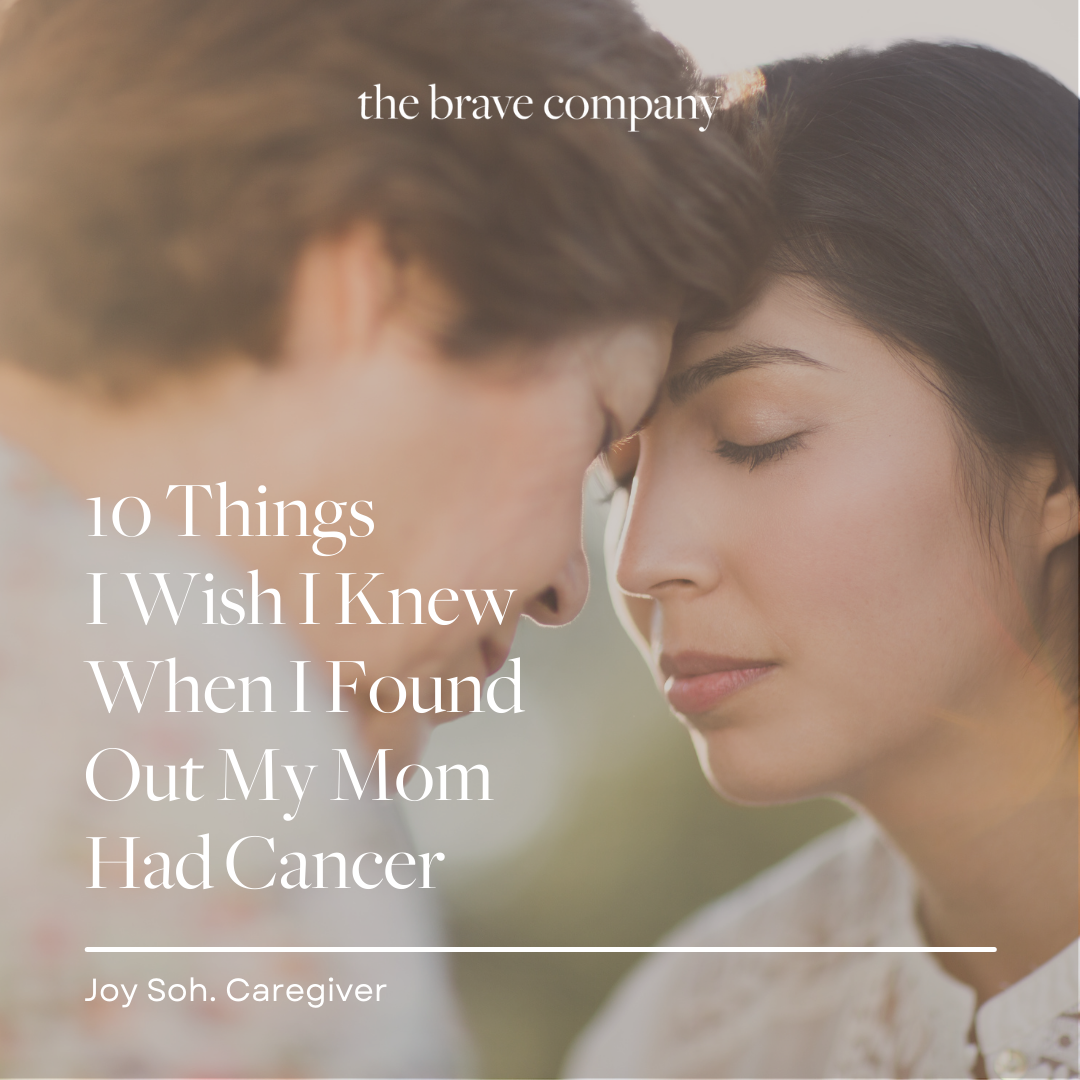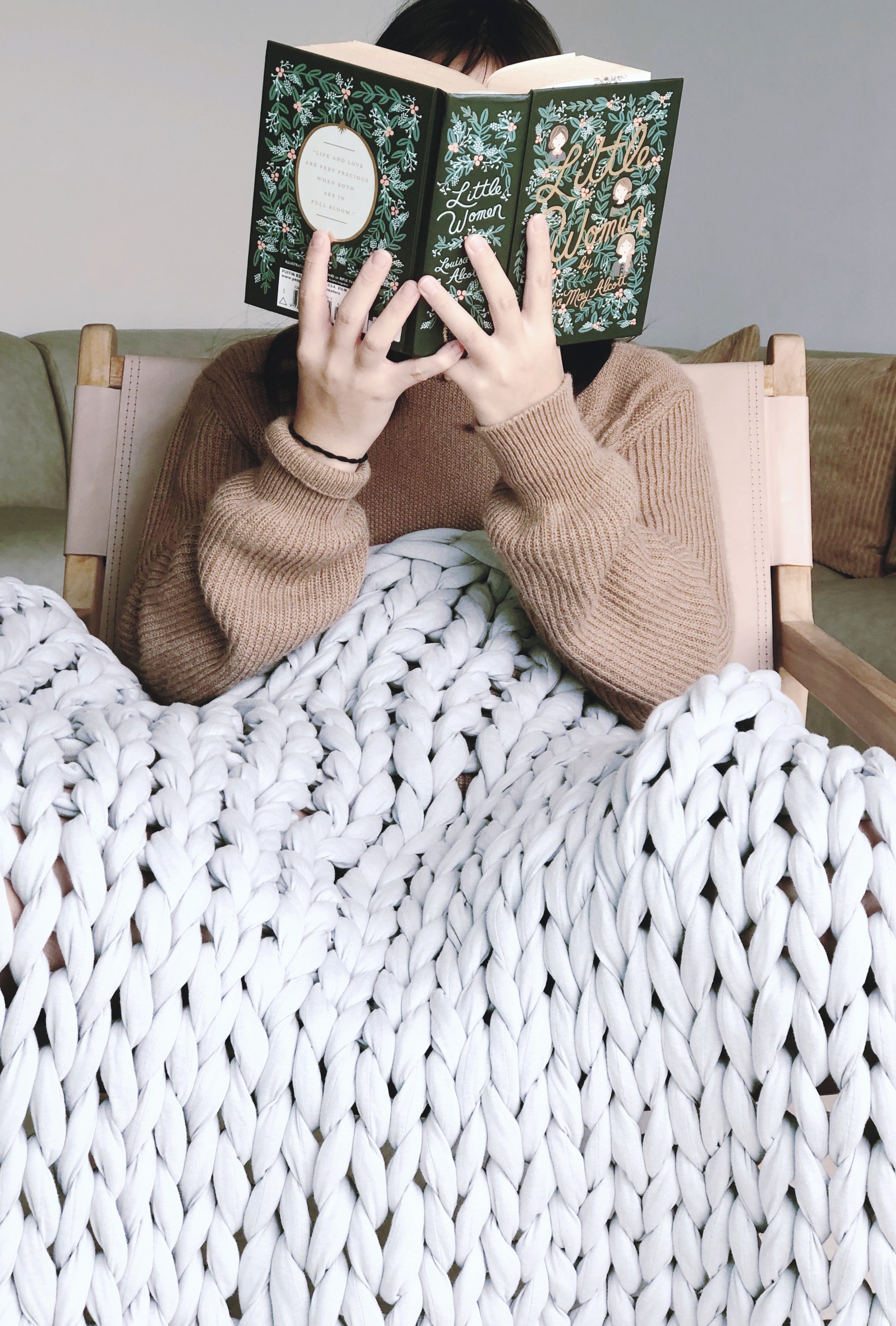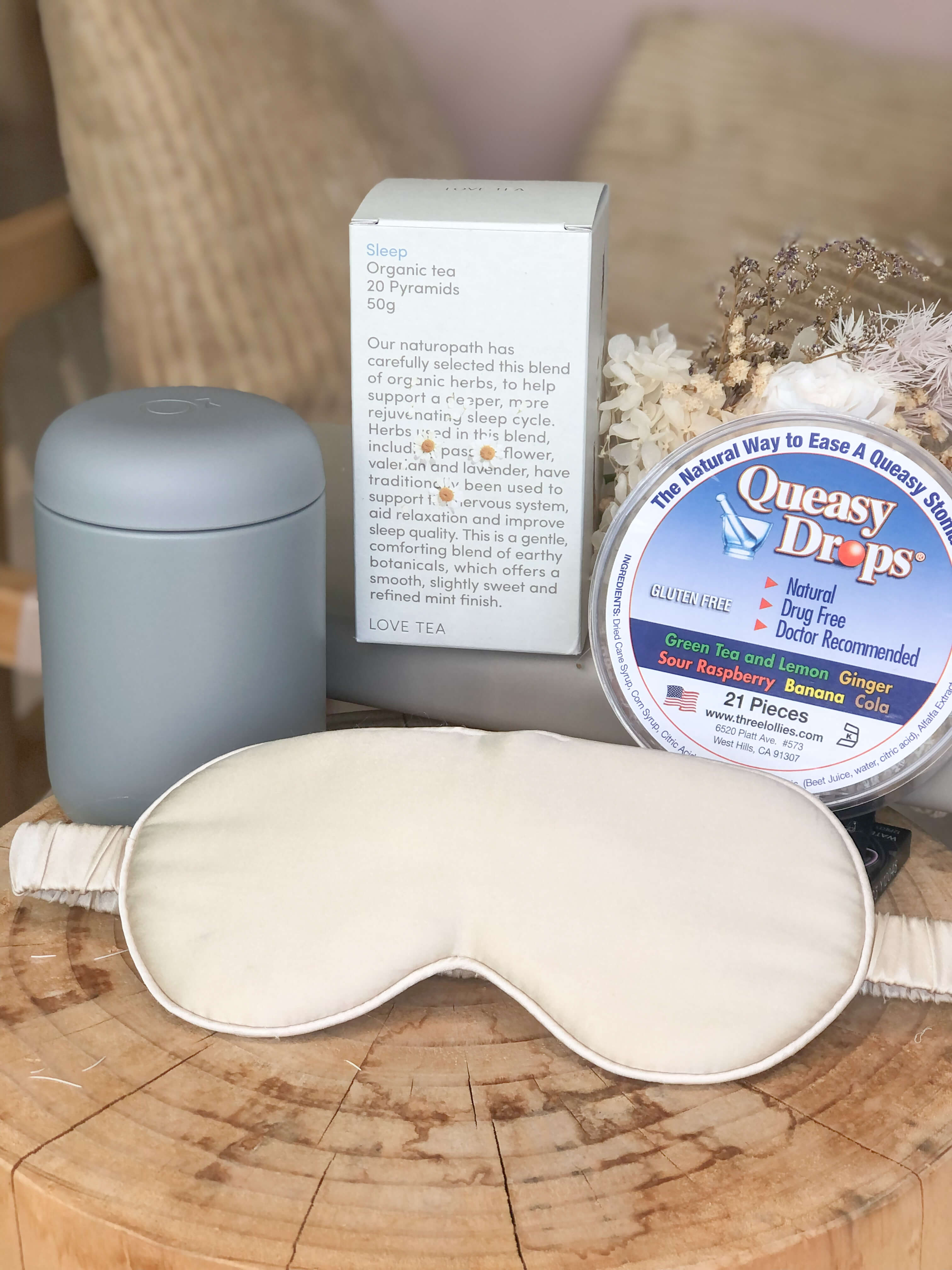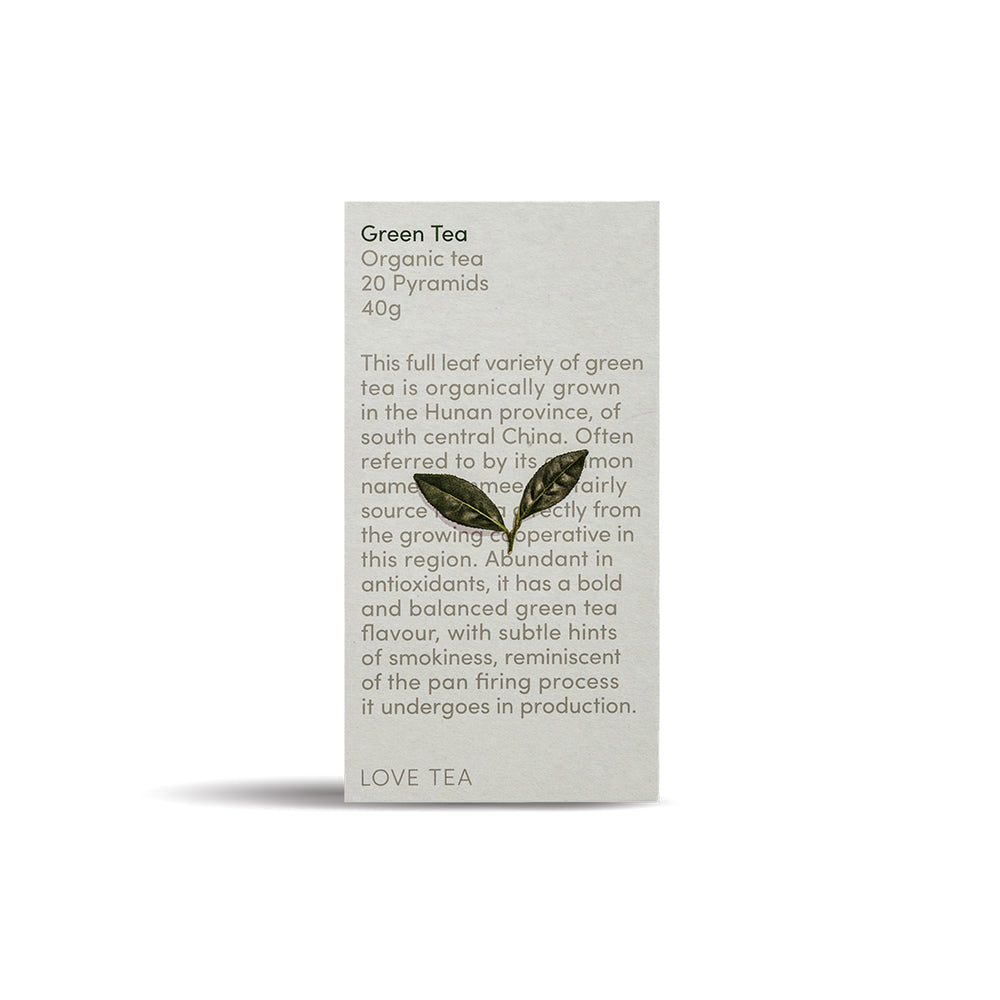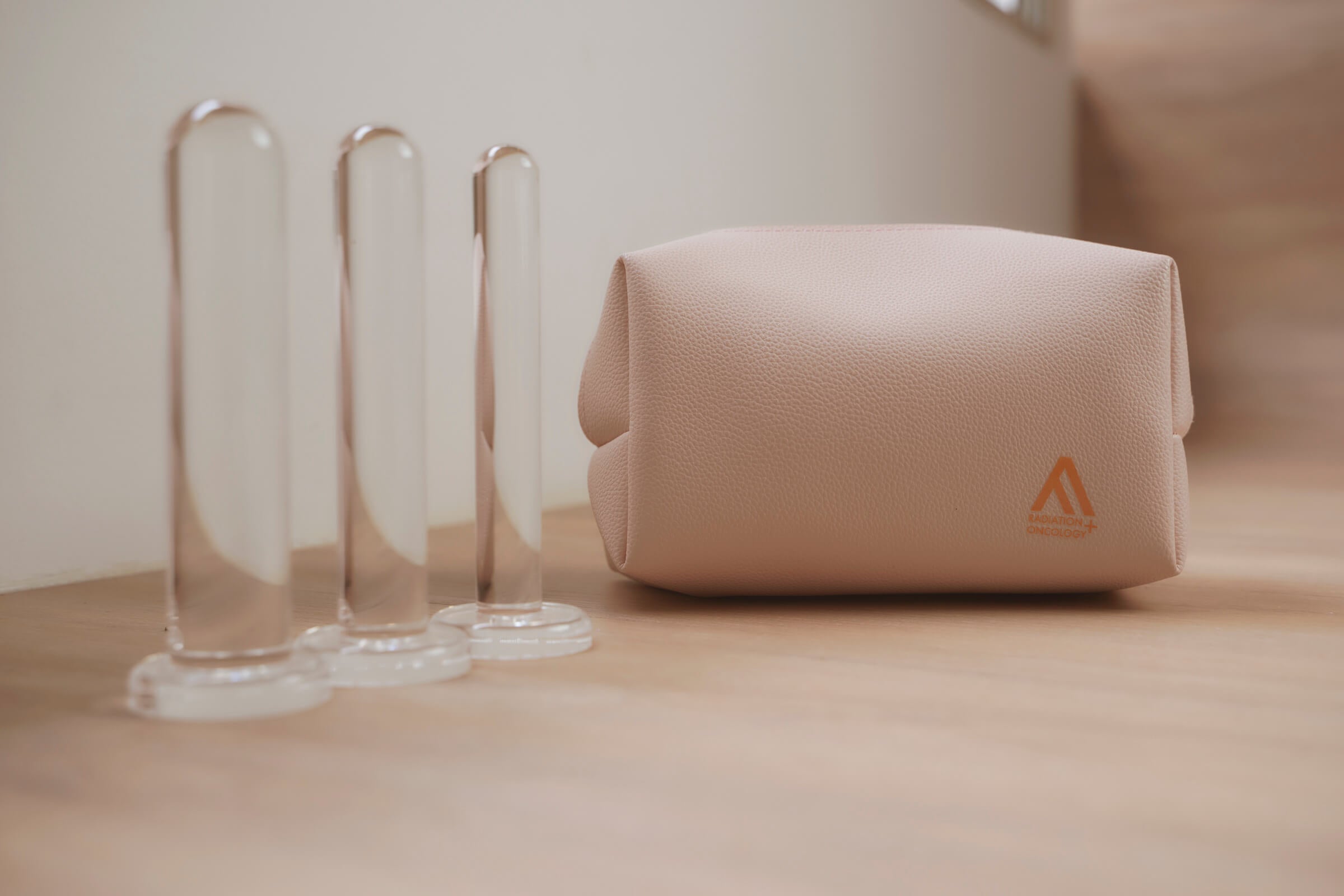
Joelle is a sailing coach to primary school kids. It was her first job upon graduation, and she has been a coach for almost 11 years now. Sailing is her lifelong passion, and she can see herself coaching till she is 70! In November 2018, at 28 years old, she was diagnosed with stage 3 colorectal cancer.

Diagnosis
How I was diagnosed and my reactions to my diagnosis
Pre-covid, there were regular regattas arranged for the children to attend and for them to compete in. Over a few training sessions throughout the year, the parents started to notice that I was losing weight rapidly and asked if I had started a new exercise regime or diet, but I had not done so as I had been very busy working.
I use a menstrual log for my irregular periods that I got from KKH because I was diagnosed with Polycystic Ovarian Syndrome in 2018, and one of the things that I tracked regularly for the log was my weight. I noticed I also experienced this pain in the lower right corner of my abdomen, but it wasn’t something that was particularly disturbing to me, and I decided to just tolerate it, since I thought I might have pulled a muscle while pulling the anchor.
I became quite concerned when I realised that I had lost about 20 kilograms of weight in 2 months, and I had almost completely lost my appetite - I could only eat one or two bites before feeling full. So I decided to go to visit a polyclinic for a diagnosis. The doctor there examined my abdomen, but was unable to discern what was wrong with me, so she wrote a memo and referral letter for me to head to the A&E Department as soon as possible. She asked if I preferred to go to Singapore General Hospital (SGH) or Changi General Hospital (CGH) as I was likely to return to the hospital for consultations afterwards. I decided on SGH as its location was more convenient for me. I contacted my elder sister as I was on my way to SGH A&E. When I entered the consultation room, the doctor did an ultrasound scan and said I had to be admitted right away. The doctor told me that there was a mass. As I was not deep in thought, I thought the doctor meant “mess” and called my sister to tell her that the doctor said my “inside was messy” (thinking that the intestines were jumbled up).
After putting me on a drip, they also arranged an X-Ray and took some blood from me for tests. Over the next few days, I just rested while being on the IV Drip and waited for my turn for the various scans and tests for my diagnosis. I was admitted on a Thursday afternoon, and the tests were conducted over Friday and Saturday. On Sunday, I had a break from the tests and on Monday, the doctors came in with a diagnosis. They told me that there was a mass in my colon which had to be removed. As someone who had done sports science before, I knew that the colon was of not much use, so I did not think much about it.
My greatest fears about my surgery
I didn’t really think much about it, as things progressed very quickly. When Dr. Toh came by, my elder sister recognized her and greeted her. I just smiled as she spoke to us about the results. Dr. Toh happened to be the assistant of my dad’s attending physician 5 years prior to my diagnosis, when he had needed an operation and my sister had complimented her, saying that she had done a great job. So I felt at ease and very comfortable with her. She laid out the various plans for me and I trusted her fully. I just listened to everything she said. Dr. Toh brought in all the specialists and introduced them to me - the Liver specialist, Urologist and even the Plastics team as there may be some complications for my procedure. She was very detailed with her plan and shared them with me and my family. She later introduced me to my Oncologist as well.My decision making process with regards to my cancer diagnosis
Did I google for more information? No I didn’t. Many people tried to tell me what’s good and what’s not but only my doctor-in-charge knew what was the best based on my condition from the lab reports. I also sought a 2nd and 3rd opinion from private hospitals but still decided on having Dr Toh from SGH in the end because they already had all my medical records and there was no point in going to private hospitals (which only had my lab reports).
Treatment
My treatment process
I agreed to the operation quite quickly and things progressed relatively quickly from there as well. I went for an MRI scan to determine the margins of the tumour. Since it was quite large, 10cm by 8cm, the doctors needed to confirm that the cancer had not spread to other areas of the intestine as well. Before the operation, I had four specialists who spoke to me - my surgeon, the anesthesiologist, the liver specialist and the urologist. They were also present during my surgery, since there were concerns that the mass had spread to other parts of the body. The mass was also so large that it had been pressing against my leg muscle and it was inhibiting my ability to move, to the point where I could not even lift my leg to put on my pants. Luckily, the cancer had not spread, so although the surgery had been slated for 12 hours, it only lasted about 5 hours.
After the operation, I was in the hospital for about 2 weeks before I was discharged. I could have been discharged after a week, but my doctor had gone abroad for a work trip, so I decided to wait for her to come back before I got discharged.
Coping after the surgery
When I was in the recovery area, I felt drowsy initially but was more alert after a while. Even though I had my eyes closed, I could still hear the nurses and they kept checking on me about my pain score.Subsequently, when the pain decreased, they transferred me to the HDU where I was observed for a day before transferring to a normal ward – WD 47. During that time, I had a CVC line, NGT, Drain and IV drip. As I got better, the drip lines were removed one-by-one, starting with the NGT. I started Physiotherapy on Day 2 and 3 after surgery, with some breathing exercises and walking with the drip stand.
The team of doctors that come by every morning were very encouraging and I looked forward to seeing them every morning, hoping to hear good reports.
For the 1st week after surgery, I was so tired so I literally ate and slept and ate and slept. I did not use my handphone and did not see any visitors as I looked so “unglam” with many tubes attached to me. My mum and dad would try to come to visit me everyday. Their presence was very important. My dad came to visit me before work even when he was so tired that he would easily fall asleep at the bedside. Although he is a man of few words, his presence was very comforting.
I also made friends with the nurses and my roommates, and talked to them when I was in the hospital. The world is like that - I help you when you need it, and you will help me when I need it, and we help each other out in tough times. For instance, if I see the nurse drop something on the floor, I will tell her. I still keep in contact with one of my roommates and we keep in touch regularly. I even visited her in her home once.
Generally, I just tried to make my movements more gentle and continued to do my morning strolls at the park nearby with my mum. I also learnt to be patient with myself when I could not move around much. I learnt to express myself better with words when I needed help moving around or getting something.
Although my mother wanted to give me chinese medication, I knew that it was not advisable because it might interfere with some of the other medications I was taking. Instead, I drank red date tea and pig liver soup to help with blood circulation.
The chemotherapy process
My surgery recovery went well. About a month after that, I started 8 rounds of chemotherapy, which lasted around 7 months. In between, I had a break because the chemotherapy was causing me to have quite bad side effects of severe diarrhea. About two weeks after I finished my chemotherapy, I went back to coaching, but I could not do any heavy lifting.
Post treatment and recovery
How my approach to sailing has changed after the diagnosis
After my chemotherapy sessions, I went back to coaching, and I have slowly increased the sessions that I teach such that I am pretty much back to my normal life as it was before. However, I have to adapt to a new norm because of some things I have to consider. For instance, my classes are usually from 2.30pm to 5.30pm, so I have to strictly time my meal at 2pm, and eat small meals regularly at 3 hour intervals.
I was also not able to go for long regattas that usually took place during the weekends, and would instead stay on shore. These regattas usually last the whole day - the boat would launch at around 10am, and the children would eat lunch at sea and only be back on shore at around 5.30pm. Because of my condition, I needed to go to the toilet very regularly, every 1-2 hours. Also, if I felt the urge to go, I had to go almost immediately, so I had to be about 300-400 metres from a working toilet at all times. Post-covid, I still remain on shore, but I am slowly working my way towards going out to sea for longer periods of time.How my diagnosis affected my daily life and my perspective of life
I definitely have become more conscious of my diet because my system is much more sensitive than before. Initially, I would eat the same food over and over again, because I was concerned about how my system would react, but over time, I’ve managed to introduce more variations to the things I eat. My diet has now become something I have to manage daily, because sometimes if I drink too much water, my stool will become extremely watery. I also follow up with my doctors regularly, and try not to be too stressed.
Every person’s body reacts differently to surgery, and I am very glad that I don’t have a stoma bag, because it would be quite difficult to handle that while I’m at sea. I’m also not a very careful person, so I’m glad I don’t have to lug a stoma bag around with me on a daily basis.“Stress is quite a major concern for me, and I’ve learnt to take things at a more relaxed pace.”
Stress is quite a major concern for me, and I’ve learnt to take things at a more relaxed pace. For instance, I now work on a freelance basis, instead of working full time. When people ask me why I don’t work more, or when they bring up topics like investments and money, it gives me a headache. While it is good to have such priorities, personally, having been through an experience as tough and life-changing as cancer, my perspective of what is important has shifted. For instance, during the six months when I was going through chemotherapy, my brain was in essence, not being used. I spent most of my time eating, watching netflix, and sleeping, because remembering things required a lot of effort. From that period of time, I’ve picked up the habit of writing down important things. Even now, I have a notebook where I write down the things I want to do. If, for instance, I have 10 things to accomplish today, I try to do at least 3 or 4, and if I feel like I have enough energy, then I’ll try to do more. On good days, I can do all of them and more, but that doesn’t happen everyday. If I can’t do all the things I wanted to do, I don’t beat myself up over it.
In Singapore, we have a very “kan-cheong” mentality - everyone is rushing around trying to do things all the time, as fast as possible. Sometimes, people view it as a kind of competition, trying to be like their friends in terms of their financial successes and otherwise. I don’t see why it is not normal for me to take a step back and do things at my own pace. However, the people around me are sometimes puzzled by my more relaxed approach because of the mindset we have in Singapore.
Post-covid, I’ve noticed that people are not only trying to return to their pre-covid lifestyles, but are rushing to surpass it. In the past, I used to be quite strict, and had very harsh standards for those around me. For instance, if someone said they were going to do something, but did not follow through on it, I would be very strict with them. Nowadays, if people can’t follow through on what they promised, I am not as harsh with them.
Luckily, my work is in itself quite therapeutic to me. When I go out to sea and watch the children have fun and see them grow in confidence and skills, it is a truly priceless experience.
How I approach mentoring young sailors that I coach
It depends on the type of students I’m teaching. For beginners, I try to help instill confidence in them by having fun with them while sailing, and encouraging them to go further in the sport. However, as they progress, especially at young adult level, I try to reduce the fears they may face while on the water. Sailing is a dangerous sport that requires high levels of discipline. When there are very dangerous conditions, it may be intimidating for even seasoned sailors. For instance, if I notice that a student asks me questions like “Teacher, how far out are we going today?” I will infer that they may be a little intimidated by the weather conditions and stay closer to their side that day. Sometimes, it's a matter of reminding them that they have confronted the same sort of conditions before, but perhaps they don’t remember. So for me, I try to always be a positive source of encouragement for them, especially when they are fearful.How I broach the topic of my diagnosis with my students
When I was first diagnosed, I left the explanation of my diagnosis to the parents of the children I taught, since most of them were working professionals, and some were even doctors, so they were able to explain it to their children well. During that period of time, the children I was teaching were very sweet, and would ask about how I was doing regularly. My very close sailing kids and their families really uplifted me during that time. They celebrated my birthday in August this year and it happened to be after my last chemo cycle in July. It felt like I had completed a milestone and am celebrating the completion of something. A boy named Zachary whom I coach gave me a Starbucks tumbler with a sailing figure inside it. He asked his mother if he could buy it for Coach Joe (me). I feel like even if he didn’t understand everything about me being sick and why I am sometimes in the hospital and other times at home, I know he is concerned. For instance, he would often tell me, “you cannot carry this heavy stuff and all...”
He treats me like a friend and always asks his mum about me. Other than that, I only disclose my diagnosis to students I am very close to, or if there are some restrictions on what I can and cannot do with them because of it. 

What sustained me throughout the recovery process
I have 3 best friends from my poly who really supported me. I am very thankful to them for journeying through this with me. The sailing kids and their families' care and concern for me also really pushed me through this journey. I am also very grateful for my older sister and my parents who were with me throughout the process.My biggest motivation throughout the recovery process
I just wanted to get back into the water to see my kids again, and to coach and hang out with them again. This was my greatest motivation to recover. Like I said, the joy that they give us is priceless.
Words of advice
My advice to someone who is going through this journey now
Firstly, there is so much negativity in this world but you decide what you want to hear and whether or not to be affected by it.
Secondly, stay in the present, and take things one step at a time. Keep your mind focused on the goal but also have enough openness to accept anything that comes your way.
How getting cancer at a young age factored into my reaction to the diagnosis
Personally, since I did sports science, I was aware of the science behind the diagnosis, and I knew how important it was to manage my mindset. Although I knew that cancer like leukemia could occur in young children, I didn’t know that colon cancer could occur in someone so young, and so, I really didn’t anticipate getting cancer.Because of this, in the beginning, I was quite “blur” and had a very child-like approach to the disease. My sister was the one who helped break the news to my extended family, like my cousins and Aunties and uncles, while I just focussed on getting better. Luckily, my family members were generally very encouraging. They told me not to worry too much, and reassured me that it was just a phase of life that I had to go through. My father did not say much, but he did advise me not to take out my entire colon, because it would mean that I would have to go to the toilet much more frequently. My mother was very shocked by my diagnosis, and was worried about what I would have to go through. I did not want to be a burden to my family members, so I tried my best to inconvenience them as little as possible.
My advice to young people who may be struggling to accept their diagnosis
I don’t mean to be so straightforward, but I believe in being very honest when discussing serious subjects. If I were to address them directly, I would say that the mass inside you is a ticking time bomb, and if you know that it’s not good for you, you should try to get rid of it as soon as possible. Nobody can see it growing, and it can be really bad. At least you have a team of nurses and doctors that will be there for you to help you through the processes and surveillance, so you don’t have to worry about whether the surgery will be successful or not. Just take it one step at a time and fight through it. Have a positive outlook, and you don’t have to worry about it so much since in the end, if your time is up, it's up. If you don’t take it out, you might have 6 months to about 3 years, depending on how quickly it spreads, but if you do take it out, you might live another 20 to 30 years, or might even live long enough to see your grandchildren! So don’t bring yourself down too much. Going through something like this can help you to realise who is truly there for you during tough times. Think of it as a way to learn how to love and care for yourself better. Everyone works so hard, and perhaps this is a way of stepping back from hustle culture. Think of it as a phase that you go through. I’m not going to comment on whether you are lucky or “suay” (unlucky) to go through this because till today, I am still not sure whether I was lucky or “suay” to have had this experience. What I do know is that it has caused me to view life differently, and it will definitely change your perspective as well. Life is unpredictable, but it will bring you a lot more joy, after you face it with a positive mind set. I understand that it will be difficult, but you will have people around you to support you, and you will really be amazed by the dedication of those around you. Think about it this way: If you get through cancer, you can get through anything in life!My advice to caregivers who are trying to support their loved ones through cancer
To me, a good caregiver is someone who is willing to lend a listening ear, prepares meals for me and empathises with what I am going through. Although I know that different cancer patients have different needs, I think these three things are quite important!How friends and family can better support young people with cancer
Sometimes, when people ask questions like, “how are you feeling …. what did the doctor say?”, it can be very tiring for the patient to go through these questions over and over again. Instead, be mindful of the patient’s needs, and you could instead ask questions about what the patient really needs - be it food, transport, or medication and try to address those concerns instead. Accompanying them for doctor visits, even if they are follow ups during remission is also a sweet way to show you care. If you can’t accompany them, you can ask them about how their follow up appointments went, and celebrate with them when they receive good reports, and be there for them when the results are not so good. Support is also very important post-cancer! In general, patients with cancer need a lot of support, and it is vital to their treatment and recovery process to have dedicated, loving friends and family around to support them through this challenging period.The brave team would like to thank Joelle for taking the time to share her experience and for her generosity in sharing her story here on the Brave website.


